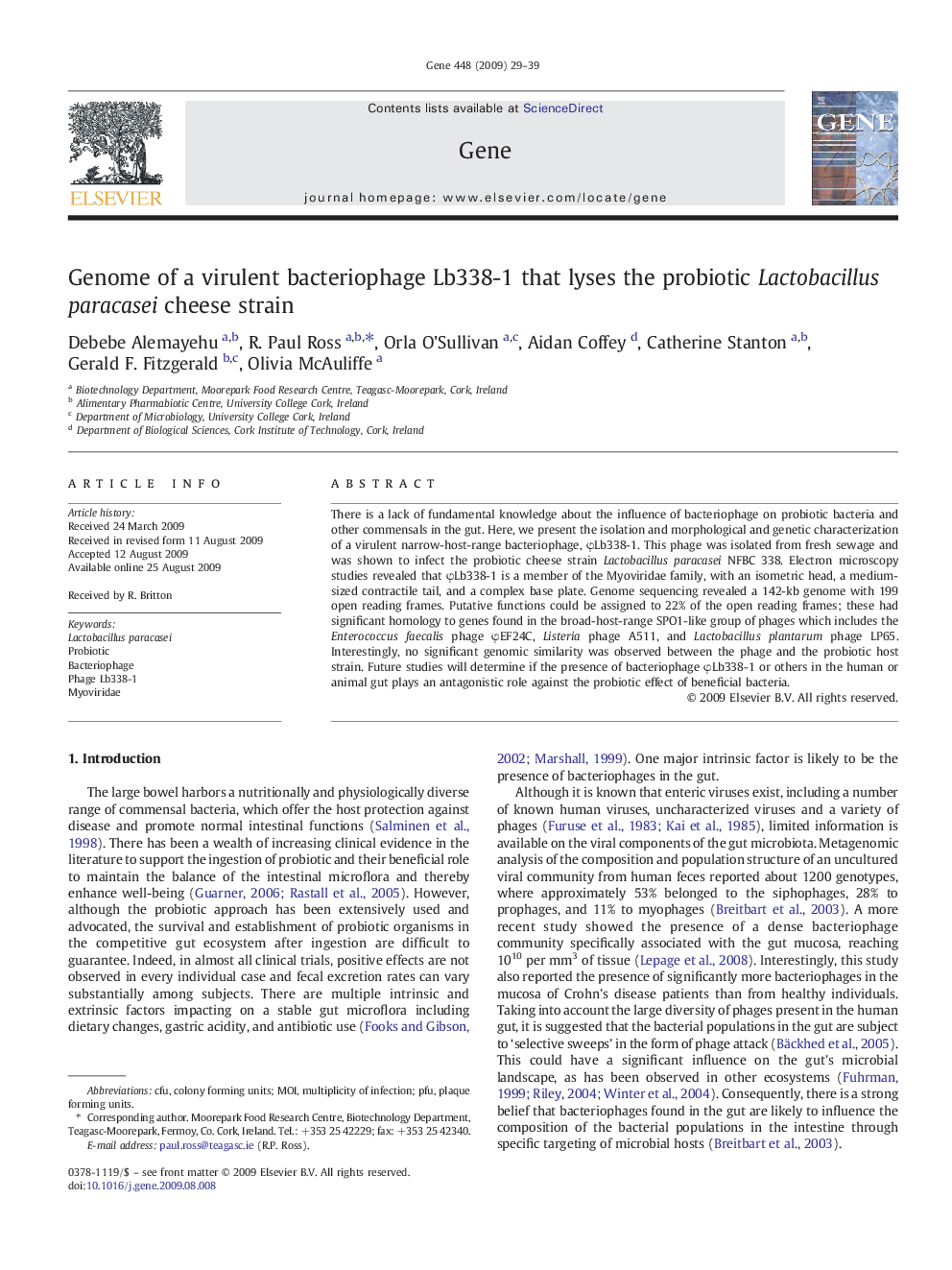| Article ID | Journal | Published Year | Pages | File Type |
|---|---|---|---|---|
| 2818717 | Gene | 2009 | 11 Pages |
There is a lack of fundamental knowledge about the influence of bacteriophage on probiotic bacteria and other commensals in the gut. Here, we present the isolation and morphological and genetic characterization of a virulent narrow-host-range bacteriophage, φLb338-1. This phage was isolated from fresh sewage and was shown to infect the probiotic cheese strain Lactobacillus paracasei NFBC 338. Electron microscopy studies revealed that φLb338-1 is a member of the Myoviridae family, with an isometric head, a medium-sized contractile tail, and a complex base plate. Genome sequencing revealed a 142-kb genome with 199 open reading frames. Putative functions could be assigned to 22% of the open reading frames; these had significant homology to genes found in the broad-host-range SPO1-like group of phages which includes the Enterococcus faecalis phage φEF24C, Listeria phage A511, and Lactobacillus plantarum phage LP65. Interestingly, no significant genomic similarity was observed between the phage and the probiotic host strain. Future studies will determine if the presence of bacteriophage φLb338-1 or others in the human or animal gut plays an antagonistic role against the probiotic effect of beneficial bacteria.
